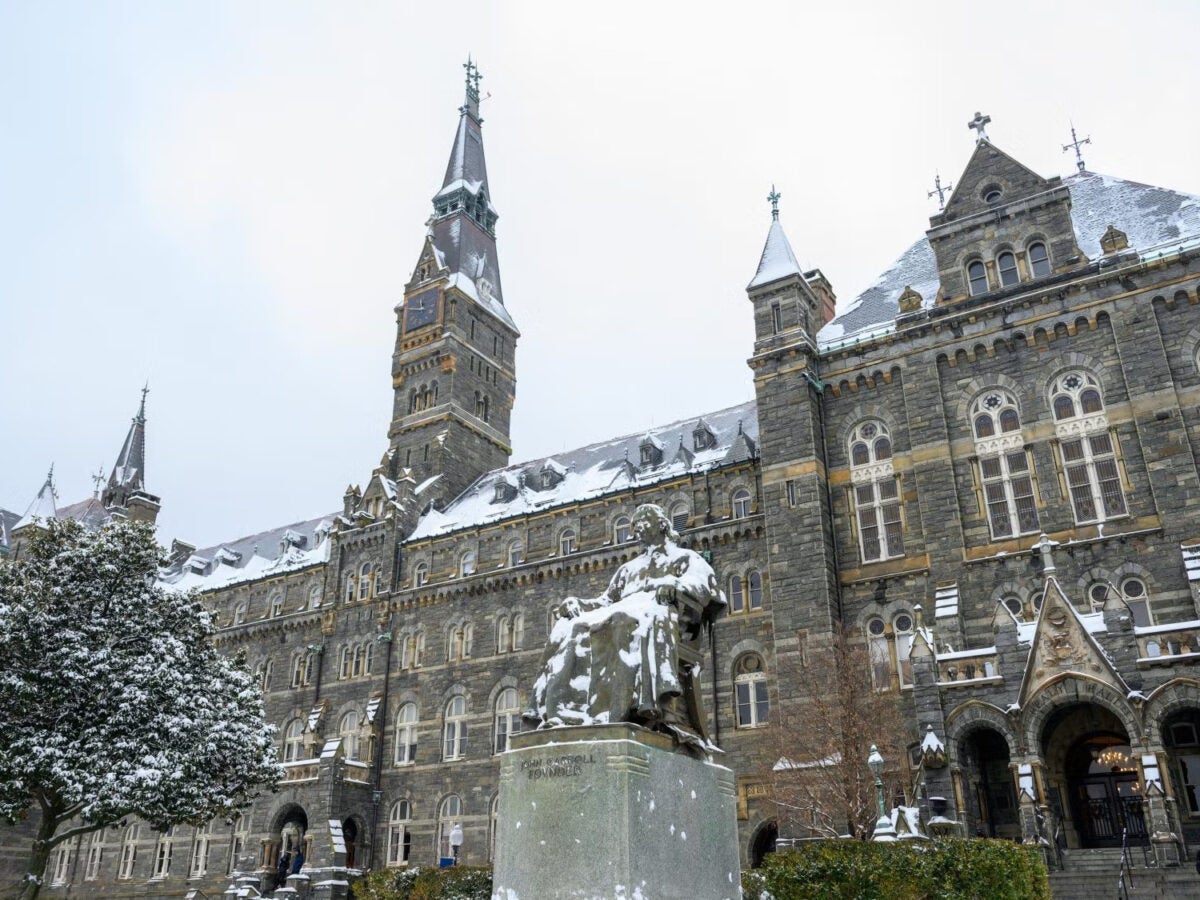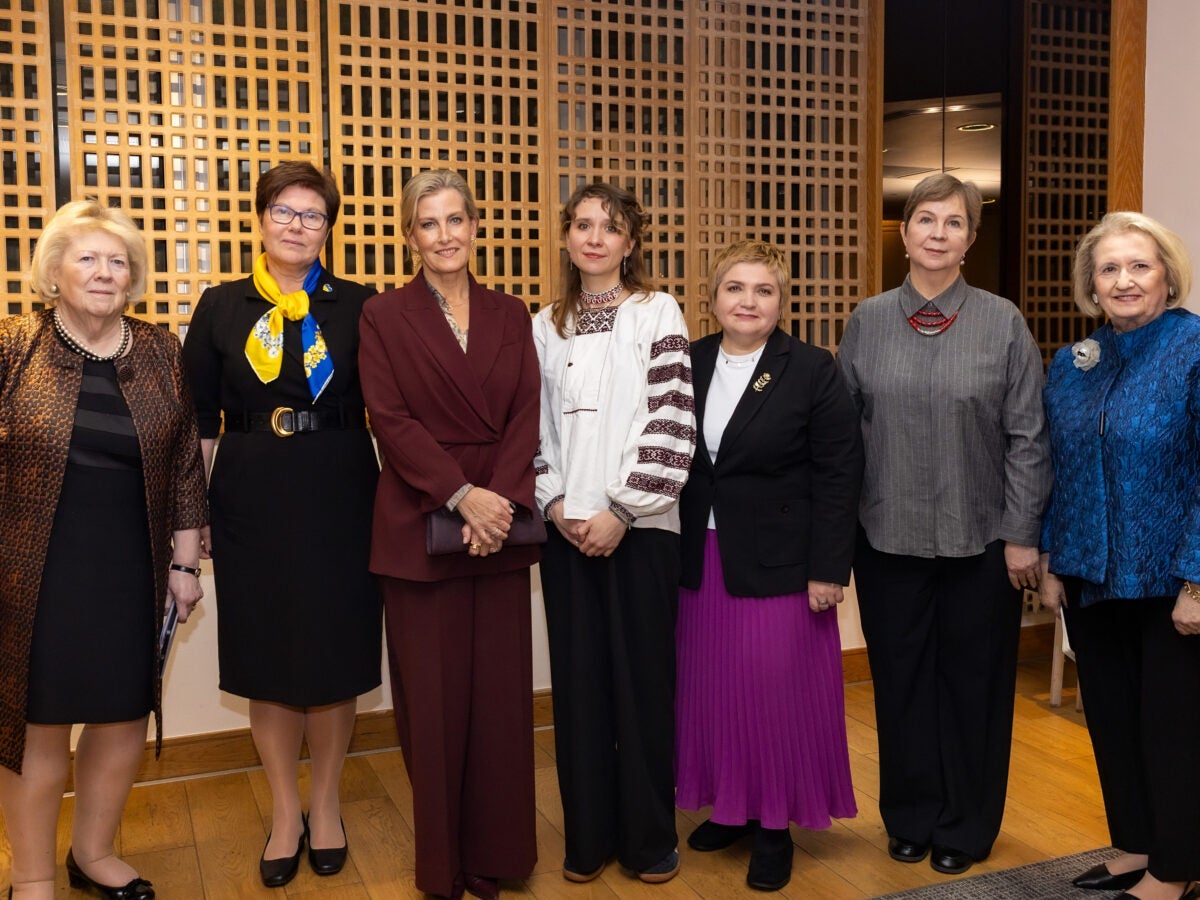Myanmar in Crisis – A Conversation with Human Rights Defender Wai Wai Nu

Myanmar is in the grasp of a military coup that has sparked mass demonstrations around the country. The armed forces have responded with repression and deadly force, which will likely keep escalating with grave risks for the Myanmar people and its once nascent democracy.

We reached out to our friend Wai Wai Nu for her analysis of the crisis. Wai Wai is a human rights activist and Executive Director of the Women’s Peace Network in Myanmar. She is Rohingya – a persecuted ethnic minority in Myanmar – and served seven years as a political prisoner under the military regime. She is now unable to return to her country for fear of being arrested. In recognition of her leadership on human rights and peace in Myanmar, Wai Wai was awarded GIWPS’ Hillary Rodham Clinton Award for Women in Peace and Security in 2018. She is clearly a woman of courage and was happy to share her thoughts on the situation in Myanmar.
Interview Transcript 2/18/21
Melanne Verveer: As you watch from outside of Myanmar, what are you thinking about the coup? Was it a shock or did you see this coming?
Wai Wai Nu: No it did not come as a shock, partly because the military already had a lot of power under the 2008 constitution. 25 percent of parliamentary seats are allocated for the military and three major ministries are under their direct control. Additional factors accumulated and gave the military the courage to do this coup.
- Personal Motivations: The head of the military, Min Aung Hlaing, is supposed to retire in June 2021. Hlaing’s family controls a majority of the country’s businesses, so he basically has absolute control of both the economy and the political space. The military calculated that if Hlaing retired, he would lose his authority over the economy, the military’s economy, and politics. Others say that Hlaing has ambitions to be president of Myanmar. So it could be a mixture of personal ego and ambitions.
- Weak Democracy: Myanmar’s “democracy” under Aung San Suu Kyi is far from a true democracy. Myanmar has one of the most brutal military institutions in the world. In allowing the 2010 political transition that supposedly installed a democracy, the military ensured that anti-democratic elements of the old regime were preserved, including its own control. The world, however, saw this as real democratization. In miscalculating and mischaracterizing the success of the democratic transition, we often ignored the crimes happening across the country, including genocide, for the greater good of democracy.
- Lack of Due Process: The military has been committing crimes against humanity since before the democratic transition and they have never been held accountable. In most political transitions there is a transitional justice process, but we failed to do that. The military believes they can get away with anything and will never have to address the core problems.
Melanne Verveer: Did the international community focus too heavily on Aung San Suu Kyi and the symbol that she was during transition? Did we remove sanctions too soon?
Wai Wai Nu: Yes. The U.S. and the West view Aung San Suu Kyi in government as equal to democracy. But there was a fundamentally flawed democratization process in Myanmar characterized both by military power and repressive, discriminatory policies under Aung San Suu Kyi’s National League for Democracy (NLD). In the 2020 election, it was Aung San Suu Kyi’s government that disenfranchised the Rohingya. We cannot just elect a leader that speaks for the majority and ignores gross international crimes, and say we achieved democracy. We are now seeing the tragic consequences of this approach.
Melanne Verveer: You have been such an extraordinary activist and advocate on behalf of the Rohingya, to whom the military has been brutal. What does this coup now mean for the Rohingya people?
Wai Wai Nu: We are already seeing increasing militarization and repression in ethnic areas and in Rakhine State. The human rights violations against the Rohingya were ongoing under both Aung San Suu Kyi and the military government and now might increase. Min Aung Hlaing once said that the Bengali (Rohingya) problem is unfinished business. He might finish the business at this time, which is an extremely concerning situation.
We cannot allow the genocide suspects or criminals to rule the country again. They must be held accountable. The world and international community have a responsibility to prevent genocide and recurrence of genocide.
“The military coup will only exacerbate human suffering and ongoing human rights violations and paint the Rohingya as enemies of the state.”
Melanne Verveer: The military has been acting with impunity and there’s been no international or other kind of accountability. Are you worried about another exodus of the Rohingya?
Wai Wai Nu: Yes. People are already leaving the country, even without aggressive crackdowns like in 2017. The remaining Rohingya, about 600,000 in Rakhine State, are barely surviving with minimum living standards and lack basic human rights, education, healthcare, the ability to do business, and the freedom to travel. On top of that, the military is forcing them to accept second class citizenship cards. People are already terrified and trying to flee, but many have been arrested and detained. The military coup will only exacerbate human suffering and ongoing human rights violations and paint the Rohingya as enemies of the state.
Melanne Verveer: What do you think the West, and the United States, should be doing now? What are you recommending at this moment?
Wai Wai Nu: These are my recommendations for immediate actions:
- Authorize collaborative and comprehensive sanctions against military businesses and assets. Targeted military sanctions are the only way to reframe the military’s position. The sanctions by the US, the UK and Canada are a great start, but they are not enough. Sanctions should not just be limited to one industry but target the entire military, including economic corporations and military businesses.
- Listen to the people of Myanmar. Some policymakers are worried about affecting the whole population, but they are not listening to the people of Myanmar, who are willing to endure sanctions and sacrifice to take the military down. They are already trying to stop the economy, military businesses, and government functions – from education to health care to railway workers – and are leading initiatives to boycott military products. The U.S. must support people’s calls for true democracy now.
- Work with partners and allies in the region, including the Indo-Pacific and the ASEAN Member States, to freeze assets and impose sanctions against military business.
- Advance a global arms embargo, which the U.S. can lead at the UN Security Council. The UN must also dispatch a monitoring and mediating body to Myanmar to ease current tensions and enable negotiations.
- Hold perpetrators accountable. We support a referral of the Myanmar situation to the ICC or the creation of an ad hoc tribunal. It’s for the sake of the people of Myanmar and for the sake of justice. We shouldn’t politicize the life of the people when it comes to gross international law violations.
- Support and provide resources to civil society organizations and young people who are looking for a more inclusive democracy. We must enable local leaders to continue to fight for democracy and address fundamental problems like deep rooted ethnic divisions and discrimination.
Melanne Verveer: There is clearly a desire on the part of the Myanmar people to solidify their democracy. Are you surprised by the incredible outpouring of protests and sacrifices? How do you feel personally watching all of this?
Wai Wai Nu: Living under repression is a nightmare for young people who don’t want to be left behind, which is partly why they are willing to protest and sacrifice so much.
You can see strong public sentiment against the militarism. The majority of Burmese people supported Aung San Suu Kyi largely because they don’t want to live under the military. However, the overwhelming majority landslide win of the NLD does not mean they all support what Aung San Suu Kyi is doing. They feel there is no other option.
Many young people who see Aung San Suu Kyi denying Rohingya ethnic identity or protecting the military want to see justice. This makes me feel hopeful because power relies on older generations. I can say that older generations tend to be more closed minded, prejudiced, and nationalist because they are products of this military system. The younger generations are more open minded because they see the world, can connect to it and have access to it, and they see what is happening there. They see right and wrong more clearly than older generations.
“We are people of Burma, whether we belong to majority or minority groups. We have the same right to get involved and make decisions over our future as the majority leader.”
Melanne Verveer: There was a dream that a peace process with the ethnic groups could work. What do you think happens to all of that now? Are we set back dramatically?
Wai Wai Nu: During the peace process, the world was listening to the voice of the majority Burman leaders, whether it was Aung San Suu Kyi or the military (who have similar positions and Burman nationalism). They were not listening to the ethnic minorities.
We are people of Burma, whether we belong to majority or minority groups. We have the same right to get involved and make decisions over our future as the majority leader. Today we face Burmese supremacy and domination that manipulates the country. The peace process has failed because the international community was only listening to Aung San Suu Kyi and the military’s version of the peace process. We need to understand the mentality of the Burman leaders and equally listen to the ethnic communities to have a successful peace process.
Melanne Verveer: Are you hopeful? Are you worried? Do you go back and forth or are you mostly concerned?
Wai Wai Nu: Since I was released from jail and worked on the ground, I’m not very hopeful. But I think we deserve to have hope. And that hope will only be alive when the world is with us and if they listen to us. We know how the military is capable of manipulating people, dividing communities, and prolonging dictatorship. It’s not going to end in one hour or one year of a state of emergency. So given this experience, I am not very hopeful. But I do feel that young people in Myanmar deserve to have hope and we deserve to have a fair future on this earth, a freer future, and that lies on the international response.
Ambassador Melanne Verveer is the Executive Director of the Georgetown Institute for Women, Peace and Security and is Special Representative on Gender Issues for the OSCE Chairperson-in-Office. Wai Wai Nu is a is Rohingya human rights activist and recipient of the 2018 Hillary Rodham Clinton Award for Women in Peace and Security.
Explore More

End of Year Reflections
This year has been particularly challenging for peace around the world, with…

“No Amnesty, No Silence:” Ukrainian Women Urge Accountability for War-Time Sexual Violence
Last week, the Georgetown Institute for Women, Peace and Security (GIWPS) brought…
